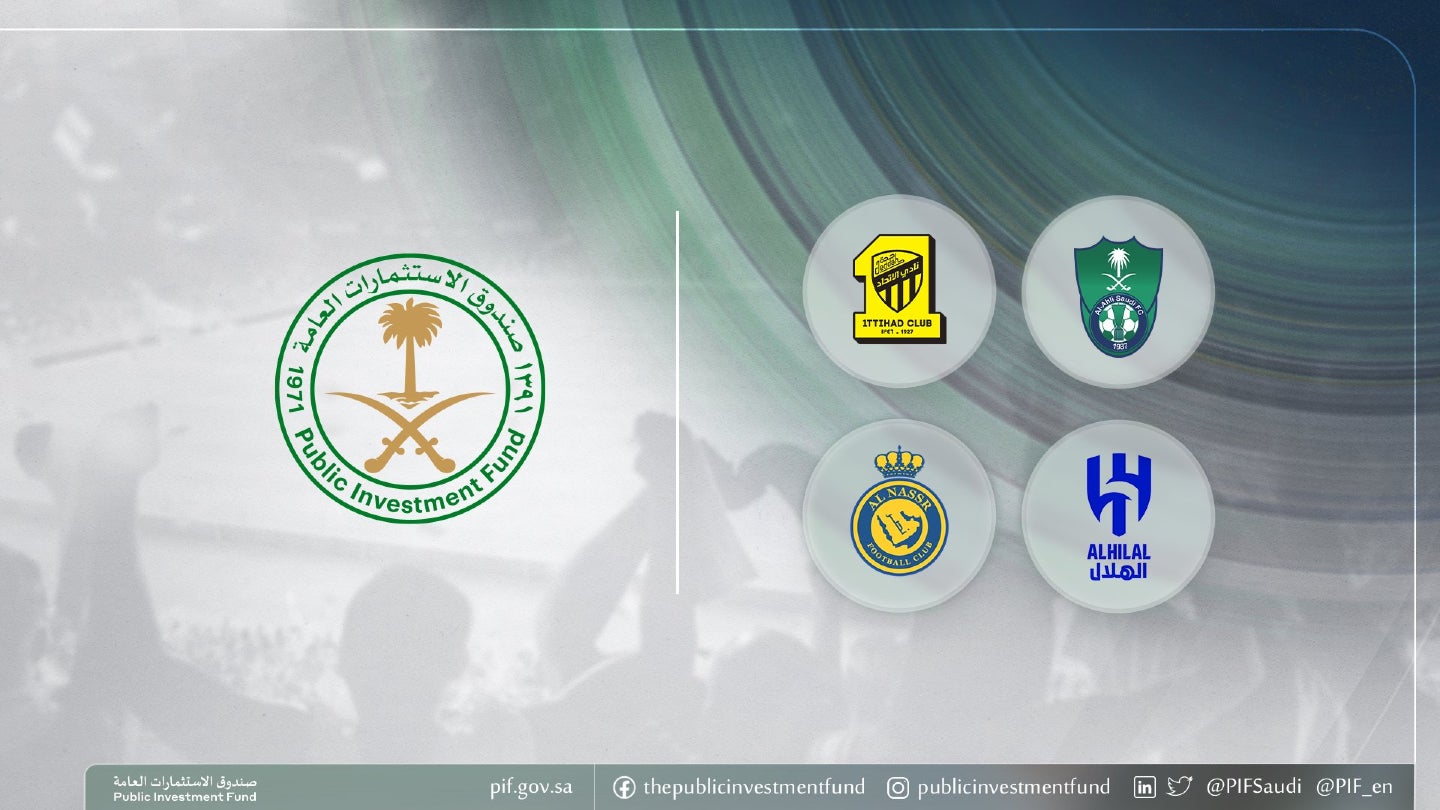Analyzing PIF's Acquisition of Saudi Pro League Clubs
Each week, a deal is selected that illustrates the themes driving change in the sports industry. They may not always be the largest deals in value or the highest profile, but they tell us where the leading players are focusing their efforts and why. Our thematic deal coverage is driven by our underlying Disruptor data that tracks all major deals across our sectors.
The deal
Monday (June 5) saw it announced that Saudi Arabia’s sovereign wealth Public Investment Fund (PIF) has acquired controlling stakes in four leading clubs in the country’s Saudi Pro League (SPL) top-tier soccer competition - Al-Ittihad, Al-Ahli, Al-Nassr, and Al-Hilal.
The move by the PIF is part of the newly launched Sports Clubs Investment and Privatisation Project, which aims to encourage private investment in the sports sector - in particular soccer - and is aligned with Saudi Arabia’s Vision 2030 economic diversification strategy.
The PIF has said the acquisitions “will unleash various commercial opportunities including investment, partnership, and sponsorships across numerous sports.”
Why it matters
Al-Ittihad, Al-Ahli, Al-Nassr, and Al-Hilal have technically been privatized, but the PIF is a state-backed investment vehicle, so, in a sense, ownership hasn’t changed. The move, however, is reflective of Saudi Arabia's growing portfolio of sporting investments, which are not purely commercial but of a higher-level strategic nature. It is indicative of the continued emergence of the Saudi economy and also touches on matters of governance, geopolitics, and human rights.
“The acquisitions represent a huge statement for the PIF and deepen its influence in soccer following its majority acquisition of Newcastle United in the English Premier League,” explains Jake Kemp, analyst at GlobalData Sport.
“With three of the teams finishing first, second, and third in the SPL this season, the PIF has not just signed any teams but taken control of the biggest clubs in the country. While Saudi soccer is not a powerhouse in world soccer in 2023, the move by the PIF highlights its intention to make it one.
“The league has already seen greater media interest in its domestic product since the arrival of Cristiano Ronaldo (the most followed person on Instagram) to Al-Nassr. His signing is set to spark a huge wave of popular transfers to the country over the coming seasons, with Al-Ittihad having already announced the arrival of Karim Benzema and also working on a deal for N’Golo Kante.”
“The league’s pull in being able to attract the biggest stars and grow its offering can be understood by the fact that it is not bound by the same financial limitations in place in Europe under UEFA. There are not the same financial fair play measures by which teams must abide.
"Players are able to retain more of their wages, with income tax not paid in Saudi Arabia. Deals like that for Benzema are beneficial for both sides, with him set to collect a huge reported €100 million a season in wages, while the state is also reported to be paying an extra €20 million for him to serve as an official ambassador for its planned hosting bid for the 2030 FIFA World Cup.”
The PIF’s purchase of the four clubs is not its most significant deal announced in the last week, though. It was announced on Tuesday (June 6) that it had partnered with US golf’s prestigious PGA Tour to create a new commercial vehicle and unify their golfing properties. When taken alongside this and in the wider context of Saudi Arabia’s other sporting investments, the purpose of the SPL club deals become clearer.
“The growing influence of the PIF and Saudi Arabia in soccer is just part of a wider growth expansion plan for the kingdom within popular culture and other sports under its ‘Vision 2030’ initiative. This has been set up to diversify the country’s economy beyond its rich oil reserves and establish a larger influence on the global economy,” says Kemp.
“Among Saudi Arabia’s investments in sport are the LIV Golf series (which now sits alongside the PGA Tour as part of that deal), Formula 1 for which it now serves as a host location and for which state-owned oil company Aramco serves as one of the biggest sponsors, and boxing, with some of the biggest bouts in the sport being held there.
“The growing power and influence Saudi Arabia wields has been described by critics as a move of soft power or sportswashing. It is building its influence not just as a source of power but also as a means of diverting global attention away from negative stories. The country has been accused by protest groups of a long-standing history of human rights abuses for groups such as migrant workers of serious gender inequality.
“Despite these accusations, Saudi Arabia is becoming increasingly important in the world of sport. It spreads the message that their global political interests can be prioritized above ethics or morals. It ushers in a sense of acceptance for potential human rights abuses in the world and offers the perpetrators a stage to shine elsewhere.”
The detail
The PIF has acquired a 75% stake in Al-Hilal, Al-Nassr, Al-Ittihad, and Al-Ahli, with the remaining 25% to be controlled by a non-profit organization. The Saudi Ministry of Sport has said each club board will comprise seven members - five appointed by the PIF and the other two by the non-profit.
The SPL will be supported in efforts to become one of the top 10 leagues in the world, with the aim of raising its commercial revenues from SAR450 million ($120 million) to over SAR1.8 billion by 2030.
More reading





